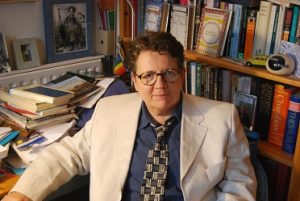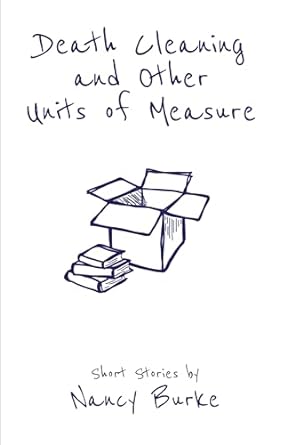Extract from VALENTINE ACKLAND: A TRANSGRESSIVE LIFE
We are delighted to feature an excerpt from Valentine Ackland: A Transgressive Life by Frances Bingham (Handheld Press) which is shortlisted for the 2022 Polari Book Prize. The winner is announced on 15th November: https://www.bl.uk/events/the-polari-prize
Valentine Ackland: A Transgressive Life
 At last, a biography of Valentine Ackland.
At last, a biography of Valentine Ackland.
Frances Bingham has written the definitive biography of this remarkable cross-dressing woman, poet and activist, recovering an important part of British lesbian history and creating a testament to queerness and gender identity in Valentine’s transgressive life.
Mrs. Turpin was Valentine Ackland, on the run from her recent disastrous marriage. She was soon to meet the love of her life, Sylvia Townsend Warner, already a celebrity for her dashing debut novel Lolly Willowes. They would live in Dorset together in a passionate relationship until Valentine’s death in 1969.
Valentine was a dedicated poet, deeply involved with Communism during the 1930s, and an environmentalist and peace campaigner. Recently released MI5 files show that she was blacklisted for confidential work during World War II, and remained under long-term surveillance.
Despite her commitment to Sylvia, Valentine had many affairs with women who fell for her androgynous beauty and her masterful conduct of an amour. She also struggled with alcoholism, but the relationship with Sylvia survived all challenges.
“Bingham prompts the reader to keep turning the pages of this well-researched, idiosyncratic, and fascinating biography.” – New York Journal of Books
“The cross-dressing Communist lesbian, her closet gay husband … and a love story like no other.” – The Daily Mail
Extract from Valentine Ackland. A Transgressive Life, by Frances Bingham
Molly consulted a woman doctor about being ‘sickened by Richard’s lovemaking’, and she recommended an operation to remove the hymen, making it easier for Richard to enjoy his conjugal rights. There is no record of any suggestion being made to improve Molly’s side of the situation. The doctor also suggested that it would be dangerous for Molly to have a baby. Molly’s priest vehemently commanded her to have the operation, allow her husband to impregnate her, and obey him. When Molly made the mistake of talking about it to Richard, he enthusiastically agreed that it was his Catholic duty to beget a child, and insisted that she should have the operation. The beleaguered Molly confessed to another, unknown priest, who sympathised so much that he wept for her, but still abjured her to have the operation, give her husband ‘every chance to enjoy his rights’, submit to him in everything, and leave it to God whether or not she died in childbirth.
Once the church and the medical profession had pathologized marital incompatibility as physical inadequacy (hers, not his), and prescribed the cure, Molly was trapped. ‘Physically revolted’ by Richard, she was under intense pressure to conquer her aversion. Although she was terrified by the prospect of childbirth, let alone death, and frightened by the idea of the proposed procedure, she seemed to have very little choice. Guilty, confused, anxious to do the right thing, Molly agreed to have this unusual operation.
*
No wonder the cottage bedroom seemed like heaven. [The Dorset village of] Chaldon [where Molly took refuge], cold and windswept and isolated, was safe; an enchanted place. It was here that Molly began to ‘moult away’ her ‘draggled adolescence’. She stayed on, eating Bovril and biscuits, trying to smoke her pipe, writing poetry, and exploring the countryside. Gradually, she recovered, her health slowly improved, she slept better, her appetite returned, her strength grew from walking, swimming, sunbathing and gardening. She made friends with the people who lived there; the pub landlady Florrie Legg, who was tactful about selling her brandy, Mr Goult who let her drive the village bus unusually fast, Shepherd Dove who greeted her from the height of the downs, Grannie Moxon, known as the local witch, who took a great liking to Molly. Ruth [Molly’s mother] continued her allowance of £300 a year, on the understanding that Molly might yet return to Richard, but Molly felt relatively poor (for her class). Still, she was determined to divorce her husband, and here she found an unexpected ally in the Catholic church; non-consummation was one of the few reasons for which annulment could be granted.
[Molly’s lover] Bo visited Chaldon often, and they ‘embarked together on a new phase of love-making’. It was with Bo that Molly decided to take a new name, to mark the emergence of her new identity. She would return to her maiden name as a matter of course, but she decided to choose a new first name as well, as an act of individuation and taking possession of her self. ‘We made a list of about six, I think,’ she recalled, ‘and I chose Valentine in the end.’
Valentine Ackland. This piece of profound self-invention was euphonious, and sounded like the name of a poet. Equally importantly, it was ungendered, if not positively masculine, expressing the contemporary fascination with androgyny, and emphasising Valentine’s new image. Whether envisaged as coming out or growing up, this naming was the means by which Valentine publicly proclaimed her new identity. It was not a pseudonym; Valentine was known to all by that name all her life, it was her official signature, it is on her gravestone. Although there were other ways in which she claimed her preferred identity, this was the most fundamental. It was the cause of frequent gender confusion, which she did not bother to correct, even in correspondence. However, the final e feminises the name in France; Valentine was already expert at being acceptably unacceptable.
The decision made with Bo also fell on that choice in clear reference to Valentine’s self-proclaimed status as a lover, whose patron saint and namesake is the high priest of love. The pagan rituals of St Valentine’s Day were important to Valentine, who treated it as her name day, and always wrote rhymes like this for the occasion:
Let who will proclaim
There’s nothing in a name
One name’s powerful – mine –
Chosen your Valentine.
Perhaps Shakespeare’s Valentine in The Two Gentlemen of Verona was also an influence; as the handsome leader of a band of outlaws, his unfaltering love wins him his beloved who is, of course, the auspiciously-named Silvia.
Most importantly, this name change was a repudiation of the childhood self, the Miss Molly who had been miserable, abused and powerless. That sad child was no more. It also expunged the heterosexual wedded self – Mrs Turpin – that Molly was unable to become. Later she wrote of this act, only half-jokingly, as necessary to her very survival. ‘Why don’t more people change their Christian names? I did. It would not have been possible to live so long if I had been called Molly – now, would it?’ By repudiating the names – and the roles – given her by other people, Valentine was free to assume adulthood, to become the poetic self she chose to be, and to express her potency – both sexual and poetic. The process of becoming Valentine completely would take several years, but living independently in Chaldon was the first step towards it.
Extracted from Valentine Ackland. A Transgressive Life by Frances Bingham (Handheld Press) which is shortlisted for the 2022 Polari Book Prize. The winner is announced on 15th November: https://www.bl.uk/events/the-polari-prize
BUY HERE
—

Photo by Liz Matthews
Frances Bingham is a London-based freelance writer who writes across the literary spectrum.
Fiction includes: ‘The Principle of Camouflage’, described by Maureen Duffy as “A true work of the imagination”, and shortlisted as a ‘missing contender’ for the Guardian First Book Award, by The Guardian’s Elizabeth Baines.
Poetry includes: ‘MOTHERTONGUE’, with images by Liz Mathews, and ‘London Panopticon’, which Mimi Khalvati praised as being “As sparkling and all-encompassing as the city itself, it is a vision, a love song, a pilgrimage, a perfect union of image and word. And it takes one’s breath away!”
Plays include: ‘The Blue Hour of Natalie Barney’, Arcola Theatre London, and ‘Comrade Ackland and I’, BBC Radio 4
Non-fiction includes: ‘Journey from Winter: Selected Poems of Valentine Ackland’ (editor), and the biography ‘Valentine Ackland: A Transgressive Life’. “Frances Bingham [is] Ackland’s critical guardian angel.” (Ali Smith, TLS)
Category: On Writing
























